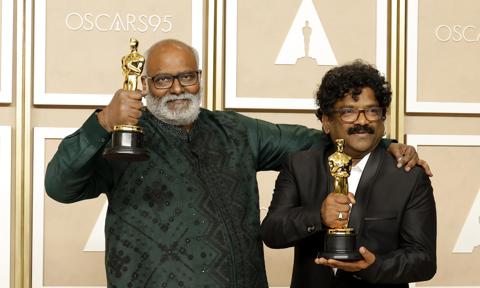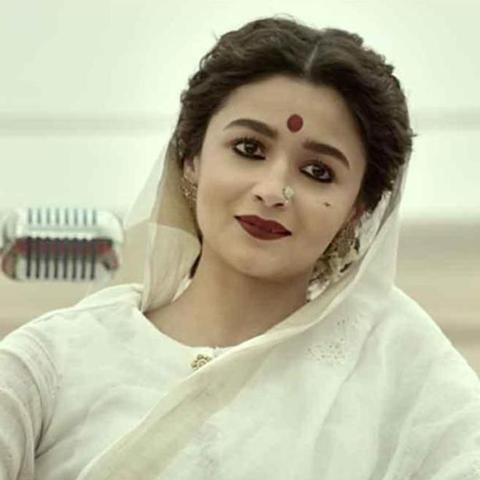
Asia shining at the 95th Academy Awards recently is yet another pearl in the lustrous string that’s this region’s contribution to the world of entertainment. We cheered on as Michelle Yeoh—one of the first Asian actresses to break into Hollywood, who won Best Actress for her role in Everything, Everywhere All At Once—gave her powerful acceptance speech, saying: “For all the little boys and girls who look like me watching tonight, this is a beacon of hope and possibilities. This is proof that if you dream big, dreams do come true.”

Winds of change have finally been making themselves felt in the corridors of global mainstream entertainment. The Western cinematic gaze often saw Asians portrayed in a narrow, one-dimensional manner, reinforcing negative stereotypes and perpetuating harmful myths about Asian culture and people. Asian women, for instance, were often objectified, while Asian men were emasculated and depicted as weak or unattractive.
It started with Asian actors rarely ever getting roles as Asians. For example, Breakfast at Tiffany’s (1961) had Mickey Rooney playing a Mr. Yunioshi, a prime example of ‘yellowface’ where a non-Asian actor was cast as an Asian character. Rooney’s portrayal of Yunioshi, with exaggerated accents and stereotypical mannerisms, is now widely regarded as racist and offensive.
And then there’s Hank Azaria, who voiced the character of Apu Nahasapeemapetilon on The Simpsons since the 1990s. He was last heard speaking in that exaggerated accent in 2017, and in January 2020, he officially gave up the role. This was a fallout of The Problem with Apu, a documentary by comedian Hari Kondabolu, which spotlighted the stereotyped character. So much so that Azaria once said in a podcast that a part of him felt like he should personally apologise to every Indian in the US!
That’s a big step towards inclusivism and a far cry from the caricaturish portrayals of the past. A common Asian stereotype in Western films and TV has been the ‘perpetual foreigner’ trope, where Asian characters are depicted as outsiders who can never fully assimilate into Western society. Then there’s the ‘model minority’ stereotype, where Asians (especially Indians and Chinese) are shown as highly successful and intelligent, though often with a grey side where they lack social skills or emotional depth. So, while Crazy Rich Asians (2018) was widely praised for its representation of Asian characters, some critics argued that it perpetuated the idea that all Asians are high achieving, completely ignoring the diversity of experiences within the community.
Of course, wonderful directors like Mira Nair and Gurinder Chadha brought their unique perspectives and stories to the forefront and created Indian diaspora stories. And their tribe has only grown. Not everyone may be a fan of Mindy Kaling’s portrayal of Indianness or question the authenticity of the South Asian experience she essays whether she’s acting or producing a show. But the fact remains that she’s been successful at mainstreaming Asians more than most.

Kaling, along with the likes of Priyanka Chopra Jonas, Dev Patel, Riz Ahmed, Aziz Ansari and Kumail Nanjiani have been paving the way for other Asians to follow in their footsteps. Not only have they been breaking barriers by playing leading roles in movies and TV shows (and turning writer or producer in many cases), they have also been instrumental in creating opportunities for other actors of the same ethnicity to shine.
In music, too, from Indian AR Rahman to Korean BTS, Asian artists have found a wider audience. And with ‘Naatu Naatu’ winning an Oscar, singers Kaala Bhairava and Rahul Sipligunj stepped out from regional recognition to international fame.
Sound designer Resul Pookutty, who won the Academy Award for Best Sound Mixing in 2009 for his work on Slumdog Millionaire, saw the start of this Asia wave, as audiences vibed to Rahman’s ‘Jai Ho’.
Up until a decade ago, we may have thought K-drama was something created by K-Jo. But today, with South Korean films and series having taken the world by storm, screens the world over have embraced a very different culture and actors who don’t adhere to what was once considered stereotypically ‘hero’ material.
With streaming platforms showcasing global productions and closed captioning, making content in any language easy to apprehend, the boundaries are blurring, stereotypes are breaking, and the world is waking up to the width, depth and wonder of the many cultures waiting to be explored within the Asian continent.
We’re well on our way to conquering everything, everywhere, all at once.
- Quick links
- RRR
- Oscars
- a r rahman






